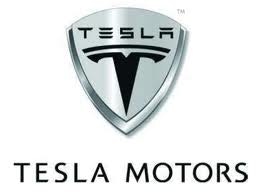
And what’s worse is that the General Motors Company (NYSE:GM) way is not working as well as Tesla’s, as GM has the lowest gross operating margin numbers in the business at 2.6% compared with Tesla Motors Inc (NASDAQ:TSLA)’s 7.3%. Although GM has been able to make $22 billion in profits over the past three years, it simply doesn’t have the panache that Tesla’s potential has.
Where Tesla should follow GM
GM’s reaped $3 billion in profit on $33 billion in revenue from China in 2012, where the company enjoys lower labor and legacy costs. And say what you will about the Chinese economy’s expected hard landing because the government there will do everything to stop the economy there from crashing. It needs to continue its march towards modernization and middle class growth. That means manufacturing and selling gobs of cars.
In 2012, General Motors Company (NYSE:GM) sold 2.8 million cars in China. In the United States it sold 2.5 million cars. The reason why is simply economies of scale: last year the Chinese bought over 19 million vehicles, while the U.S. market only bought 14 million.
And sales numbers there are being held back by the Chinese government, which means that there is pent up demand. In many municipalities like Shanghai, car demand is being curtailed through government license plate controls. Yet a mandate was set in 2012 for there to be 500,000 electric cars on the road in China (all-electric and hybrid) by 2015, and 5 million by 2020.
Tesla’s strategy in Asia so far
The company most recently opened its first Asian dealership in Hong Kong and has begun to ship cars there. According to Bloomberg, Tesla Motors Inc (NASDAQ:TSLA)’s business there will at least double the number of electric vehicles in Hong Kong. The government there has said there are only a few hundred registered electric vehicles right now.
The lack of any focus on electric vehicles in Asia, especially China, gives Tesla tremendous advantage. General Motors Company (NYSE:GM), which has a 14.6% share of the market in China, is having enough trouble selling the Chevy Volt and hybrid trucks to American consumers. Trying to innovate in China or change a model that is already working there is not something that GM wants to do.
 Rate of charge at a Tesla Supercharger station. Source: Tesla
Rate of charge at a Tesla Supercharger station. Source: TeslaBut Tesla Motors Inc (NASDAQ:TSLA) operates on doing things differently. One example of this is in infrastructure. Tesla is building a Supercharger network in the United States with 27 currently open and plans to build out access for 98% of the population of the U.S. and Canada by 2015. They could do the same thing in China, where roadway infrastructure still needs more road stops that are more common in North America.
Another competitor
The car industry is highly competitive. It is a high-stakes, high money game. Ford Motor Company (NYSE:F) knows this. But you’d never see a company like Ford, which made $5.6 billion on $134 billion in revenue, trying to do Tesla-type things like cut out dealers or build fueling stations. There is simply too much legacy involved; in effect, the tradition of Ford actually hinders its ability to take as many risks.
Ford Motor Company (NYSE:F) didn’t really take risks going into China either, and that has resulted in a paltry 3.2% market share in 2012. It’s an improvement, though – that was their first year being over three percent in market share. Ford recognizes the growth numbers in China will go up over the next ten years and is making sure that it is a part of that.
Ford is releasing its own electric vehicle in the United States, the 2014 Focus, which gets 76 miles per charge. Given China’s mostly metropolitan-based demographics of car ownership, the battery-powered Focus could be a good seller there. Ford Motor Company (NYSE:F) CEO Alan Mulally has said that Ford will sell it there at some point. Add in the fact that they have recently build five plants on the mainland and you can see they are trying hard not to continue to fall behind in China.
Bottom line
Chinese central planners have said that they want to have 5 million electric cars on the road there by 2020. That’s only seven years away. General Motors Company (NYSE:GM) wants to sell the Volt there, but it is afraid of its local partners stealing the battery technology and hurting General Motors Company (NYSE:GM)’s business there. Ford Motor Company (NYSE:F) has a Focus that it desires to sell in China, which would seem to be a hit in a market where small cars are what the middle class buys.
Then there’s Tesla Motors Inc (NASDAQ:TSLA). It has luxury and sport electric vehicles that could be a hit in China. It really needs to do something, as losses continue to mount, with a record $396 million loss in 2012. Tesla could garner major profits and see excellent margin growth by selling premium cars in China; it’s all just a matter of CEO Elon Musk making the move to do so. Earlier this year, Tesla Motors Inc (NASDAQ:TSLA) representatives said a flagship store in Beijing would open by spring. It hasn’t happened yet.
The article The One Market That Will Bring Tesla Profits originally appeared on Fool.com and is written by Daniel Cawrey.
Daniel Cawrey has no position in any stocks mentioned. The Motley Fool recommends Ford, General Motors Company (NYSE:GM), and Tesla Motors . The Motley Fool owns shares of Ford Motor Company (NYSE:F) and Tesla Motors Inc (NASDAQ:TSLA). Daniel is a member of The Motley Fool Blog Network — entries represent the personal opinion of the blogger and are not formally edited.
Copyright © 1995 – 2013 The Motley Fool, LLC. All rights reserved. The Motley Fool has a disclosure policy.




